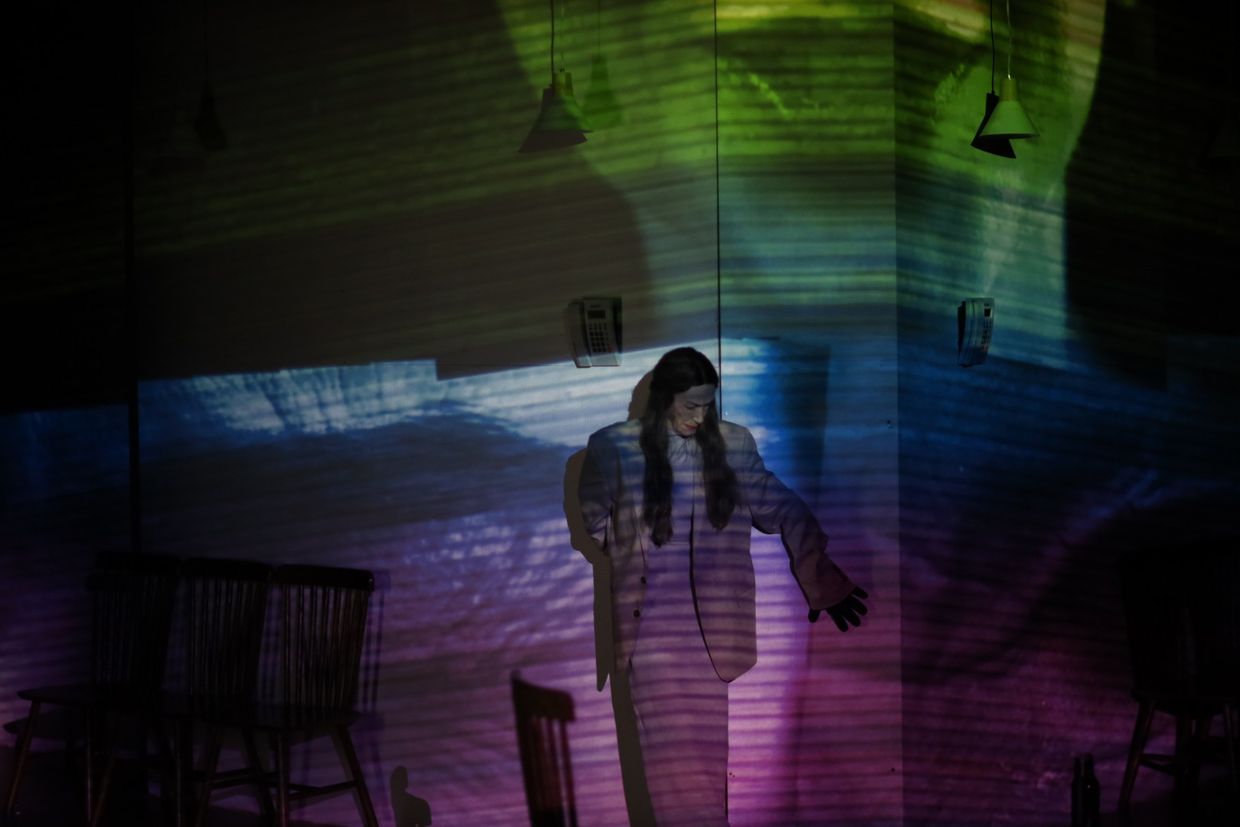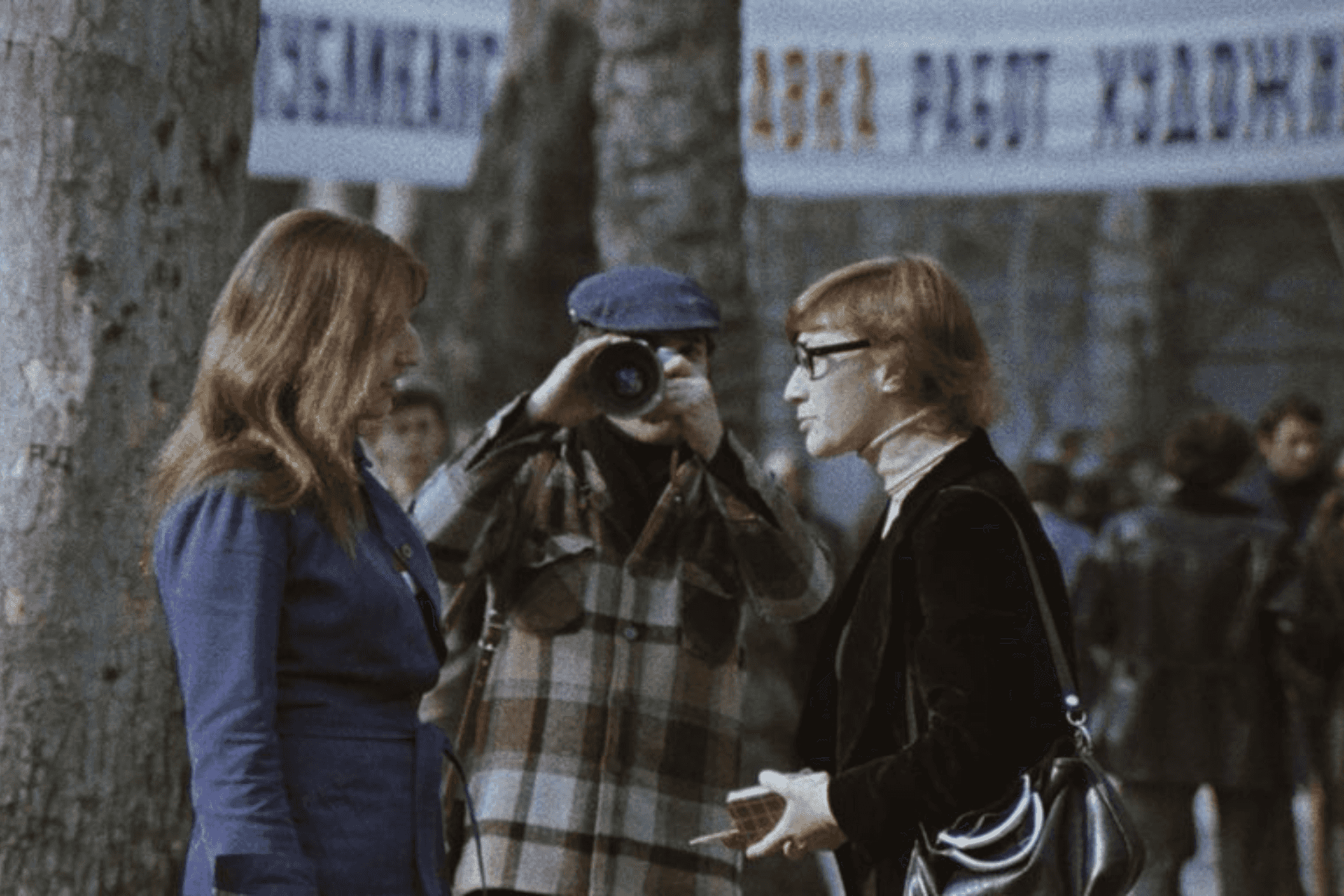
3.5/5★
Tata Popiashvili’s The Human Voice reframes heartbreak as dialogue between despair and resilience, balancing loss with the strength to let go.
Jean Cocteau’s The Human Voice (La voix humaine), first staged in 1928, remains one of the most strikingly intimate theatrical explorations of heartbreak.
The play focuses on a distraught woman’s final telephone conversation with her departing lover, a moment that crystallises themes of desperation, communication, and the evolving nature of human relationships. At its core, the single-character monologue uses the telephone not only as a prop but as a symbol of emotional distance, fragility, and the illusion of connection.
In Popiashvili’s interpretation for the Poti Theatre, this familiar text takes on an intriguing new dimension. Rather than leaving the protagonist fully isolated, she is shadowed by another figure — her grown-up self, or perhaps an inner voice — that follows her across the stage. This presence is not passive; it contradicts her despair, urging her to let go of her pleading, to stop clinging to the man who is leaving, and instead to prioritize herself. The tension between these two presences — the broken woman on the phone and the wiser, more resilient self beside her — creates a layered performance that reframes Cocteau’s monologue as both an intimate confession and an internal dialogue.

Performances are heartfelt and emotionally raw, particularly in how the despair of the phone call is contrasted with the firmness of the shadow-self.
What I liked most was the integration of poetry and audio-visual elements in the performance. At some point, we hear Sylvia Plath’s ‘Tulips’, which she wrote before she took her own life. This adds to the layered emotions, which are expressed and battled by the protagonist — fighting the thought of suicide versus survival. It also underlines the loneliness and isolation of oneself, especially as predetermined assumptions of exaggeration and hysteria shadow every step of a woman’s expression of feelings.
However, the pacing does occasionally falter, with moments that feel stretched beyond their tension, risking a dip in audience engagement. At times, one wishes the contrast between the protagonist’s anguish and her alter ego’s resilience had been drawn with sharper dramatic strokes.
Still, this production succeeds in offering a fresh perspective on a nearly century-old play. By staging the monologue as a dialogue between vulnerability and self-preservation, Popiashvili’s vision highlights not only the pain of abandonment but also the possibility of reclaiming strength in the face of it. It is a thoughtful, layered performance — if not flawless — that leaves the audience reflecting on the delicate balance between holding on and letting go.
The Human Voice premiered at the Poti Theatre in July 2025, and was recently shown at the 2025 Tbilisi International Festival of Theatre. It will be performed next in Poti on 9 November, although it is unclear if English subtitles will be included.










